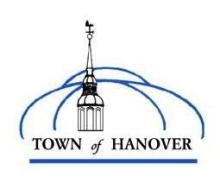Shoot-Out Over the WiredWest: MBI Pulls Funding in Massachusetts Saga
Officials from WiredWest Communications Cooperative in western Massachusetts spent years working with small towns creating a collaborative plan to develop a regional fiber network. The deadline for participation was, January 9th, a little more than a month away, and even though the trail had been thorny, the path now seemed clear. Suddenly, the state revoked critical funding, sending the carefully planned and negotiated project into shambles.
WiredWest Coop Born, Reborn, Ready to Ride
More than five years ago, a group of small towns in Western Massachusetts formed a communications cooperative that evolved into the WiredWest Communications Cooperative Corporation. Their goal was similar to that of any cooperative organization: use the collective resources of the member towns to construct a much needed utility - a fiber-to-the-home network (FTTH) - that could address a persistent problem for a group rural communities - the lack of quality Internet access.
The number of participating towns in the coop has fluctuated over the years; 44 towns are currently official members. Its business plan and operating agreement have also changed as member towns come to consensus on what presents the best path for their local needs.
As the coop refined its model, the business plan, and the operating agreement, WiredWest volunteers worked to secure early subscriber commitments from residents and businesses. Each community obtained a certain threshold of commitment in order to join the coop. To date, WiredWest communities have obtained approximately 7,000 early subscribers.
Each town must establish a Municipal Light Plant (MLP), a process consistent with Massachusetts State Law. The MLP is the entity that is responsible for owning and operating a municipal fiber network. WiredWest describes itself as a cooperative of MLPs with delegates from all 44 member towns as decision makers. The coop's business model also requires a series of votes to ensure local accountability before a town can be considered a member of WiredWest:


